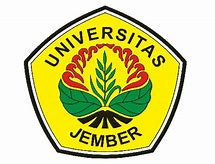ADAPTATION ANALYSIS OF HARRY POTTER AND THE HALF BLOOD PRINCE NOVEL BY J.K. ROWLING INTO FILM BY DAVID YATES
Abstract
Nowadays, there are many literary works that is transformed into an adaptation work. One of them is J.K rowling's novel entitled Harry Potter and the Half Blood Prince with the same title. Using this object, this article focuses on the motives that exist in the process of adapting the novel and make it into the form of a film adaptation. During process of transformation,it arises some changes and some excisions. These changes because of the consequences of the differences in the media, the text and audiovisual. There are three issues discussed in this research. First, what are the changes that have been made by the production team, the second, the consequences of differences in media against stories in novels and films, the third, the motives that contained in the film adaptation of Harry Potter and the Half-Blood Prince. Then, we use comparative method in this study in order to compare the differences between the novel and the film. During the process of analysis, we use the theory of adaptation and semiotic analysis. Furthermore, this article begins by classifying the differences that exist in the novel and compare it to the movie. After that, we use semiotics in order to help find the ideology that contained in the novel and the film. This ideology helps on finding the motives that contained in the film adaptation. The results of the analysis are: dominant ideology in the film adaptation is capitalism ideology that explains the economic and cultural motives in this film adaptation
Penulis yang mengusulkan naskahnya untuk dapat diproses penerbitannya pada Pustaka Budaya dianggap telah menyetujui beberapa hal sebagai berikut:
1. Penulis tidak dapat menarik naskah yang telah usulkan untuk diproses hingga mendapat jawaban dari Ketua Dewan Penyunting atas status naskah artikel ilmiahnya (diterima atau ditolak untuk diterbitkan).
2. Penerbit tidak bertanggung jawab terhadap kasus plagiasi atas artikel yang terbit pada Pustaka Budaya.
3. Penerbit tidak bertanggung jawab atas data dan isi dari artikel yang diterbitkan pada Pustaka Budaya, dan sepenuhnya merupakan tanggung jawab penulis.
4. Penulis yang artikelnya diterbitkan pada Publika Budaya menyetujui lisensi berikut:
Publika Budaya by University of Jember is licensed under a Creative Commons Attribution-NonCommercial 4.0 International License.



